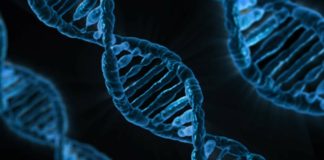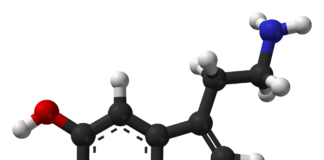Tag: Serotonin
Pharma CEO, Others Attempt Contradictory Critiques of Serotonin-Debunking Study
Moncrieff et al. respond to the contradictory and, in some cases, false concerns raised by these critics of their serotonin review.
The Serotonin Zombie: Authors of New Study Try to Breathe New...
Despite new claims that their study provides "clear evidence" linking serotonin and depression, their data actually supports the opposite conclusion: serotonin levels did not correlate with depression.
Mental Health Survival Kit, Chapter 2: Is Psychiatry Evidence Based? (Part...
“Psychiatry’s Starter Kit”: Many people start their psychiatric "careers" by consulting their family doctor with some problem many of us have from time to time and leave with a prescription for a depression pill.
Exposure to Antidepressants in the Womb Linked to Autism
Researchers, publishing in Toxicology Research, review the evidence that antidepressant exposure in the womb is linked to autism spectrum disorders (ASD) in humans.
Exposure to Antidepressants in the Womb Linked to Autistic Behavior in...
Researchers experimenting on mice found that exposure to fluoxetine (Prozac) in utero resulted in behaviors considered in animal studies to be analogous to autism in humans.
Does Active Placebo Response Explain Antidepressant Results?
A new study investigated whether participants guessing if they have an antidepressant or placebo affects response rates.
Large Rigorous Study Debunks Popular Gene-Environment Theory of Depression
A large and rigorous meta-analysis fails to find support for the gene-environment interaction theory of depression.
Researchers Question Link Between Genetics and Depression
A new study, published in the journal Molecular Psychiatry, found no link between genetics and the occurrence of depressive symptoms.
How Do Antidepressants Really ‘Work’?
A recent review, published in Neuroscience & Biobehavioral Reviews, challenges the dominant assumptions about the neurochemical and therapeutic effects of Selective Serotonin Reuptake Inhibitors...
Mourning? – Yes; Forgiveness? – No. Healing from Trauma
Mourning is the biological process that allows us to relinquish and deactivate the brain mappings that result from trauma. By facing the pain, we can truly put it behind us, where it no longer rules us. In so doing, one writes a new play that is infused with authenticity and love.
Who Will Guard the Guardians of Psychiatry?
The assertion that the so-called antidepressants are being over-prescribed implies that there is a correct and appropriate level of prescribing and that depression is a chronic illness (just like diabetes). It has been an integral part of psychiatry's message that although depression might have been triggered by an external event, it is essentially an illness residing within the person's neurochemistry. The issue is not whether people should or shouldn't take pills. The issue is psychiatry pushing these dangerous serotonin-disruptive chemicals on people, under the pretense that they have an illness.
Depressed, Anxious, or Substance-Abusing? But Don’t Buy You Are “Defective”?
Depressed, anxious, and substance-abusing people can beat themselves up for being defective. And psychiatrists and psychologists routinely validate and intensify their sense of defectiveness by telling them that they have, for example, a chemical-imbalance defect, a genetic defect, or a cognitive-behavioral defect. For some of these people, it feels better to believe that they are essentially defective. But the “defect/medical model of mental illness” is counterproductive for many other people—especially those “untalented” in denial and self-deception—for whom there is another model and path that works much better.
Exploiting The Placebo Effect: Deceiving People For Their Own Good?
There is an enormous irony in a psychiatrist using the epithet "thought police" to express censure, when it is psychiatry itself that routinely incarcerates and forcibly drugs and shocks people on the grounds that their thoughts and speech don't conform to psychiatry's standards of normality.
Serotonin Is Still Alive and Well in Psychiatry Land
In the September, 2015 issue of JAMA Psychiatry, a team of Swedish researchers published a study evaluating the serotonin system in persons with social anxiety. the findings here are in direct contradiction to what the pharmaceutical companies would have us believe: that anxiety and depression are caused by deficit levels of serotonin. There was an editorial by the authors in the same issue which attempted to obfuscate the findings by referencing the heterogeneity in persons who exhibit social anxiety. Unfortunately, neither the article or the editorial referenced the work of neuroscientist who for the past 30 years have been investigating what happens in the brains of animals that are subjected to uncontrollable stress.
SSRI Antidepressants Increase Surgery Risks
There is accumulating evidence that taking SSRI antidepressants increases the risk of bleeding and other complications during surgery, according to a review published in the British Journal of Anaesthesia.
Study Links SSRIs to Violent Crime in Youth
Individuals between the ages of 15 and 24 are more likely to commit a violent crime if they are taking an SSRI antidepressant than if they are not, according to new research out of Sweden. The study published in PLoS Medicine on Tuesday, suggests "warnings about the increased risk of violent behavior among young people taking SSRIs might be needed.”
A Reply to Peter Kramer: Do Serotonin Imbalances Cause Depression?
A recent article on the website i09 titled, ‘The Most popular Antidepressants are Based on an Outdated Theory” has again raised the issue of Chemical Imbalances. It is interesting that the author of the i09 piece cites Dr. Peter Kramer and states, “Some psychiatrists vehemently disagree with the way journalists and other psychiatrists have pushed back against the chemical imbalance theory….” In both cases he cited what he considered the best evidence in support of the theory, but he did not discuss the research in any depth. Back in 2008, we took an in-depth look at the evidence that Dr. Kramer used to support the chemical imbalance theory. When one takes a closer look at that research we do not think it supports the theory. For this reason, we are reposting our 2008 essay about this.
Things Your Doctor Should Tell You About Antidepressants
The conventional wisdom is that antidepressant medications are effective and safe. However, the scientific literature shows that the conventional wisdom is flawed. While all prescription medications have side effects, antidepressant medications appear to do more harm than good as treatments for depression.
Teenagers on SSRIs
Last week, the Wall Street Journal has an article titled The Medication Generation by Katherine Sharpe which questioned the fact that a large number of teenagers are...
60 Minutes, The SSRIs, and The Dirty Little Secret
Last night, 60 Minutes presented the work of Irving Kirsch, who has been researching the placebo effect in antidepressants for many years. We discuss.
Revising the History of the Serotonin Theory of Depression?
Did scientists recently discover that the Serotonin Theory of Depression is false? Or has this been known for decades? We investigate.
Psychiatry’s Grand Confession
The psychiatric profession has finally come clean and confessed on a national media outlet that there is no evidence to support the Serotonin Theory...


















